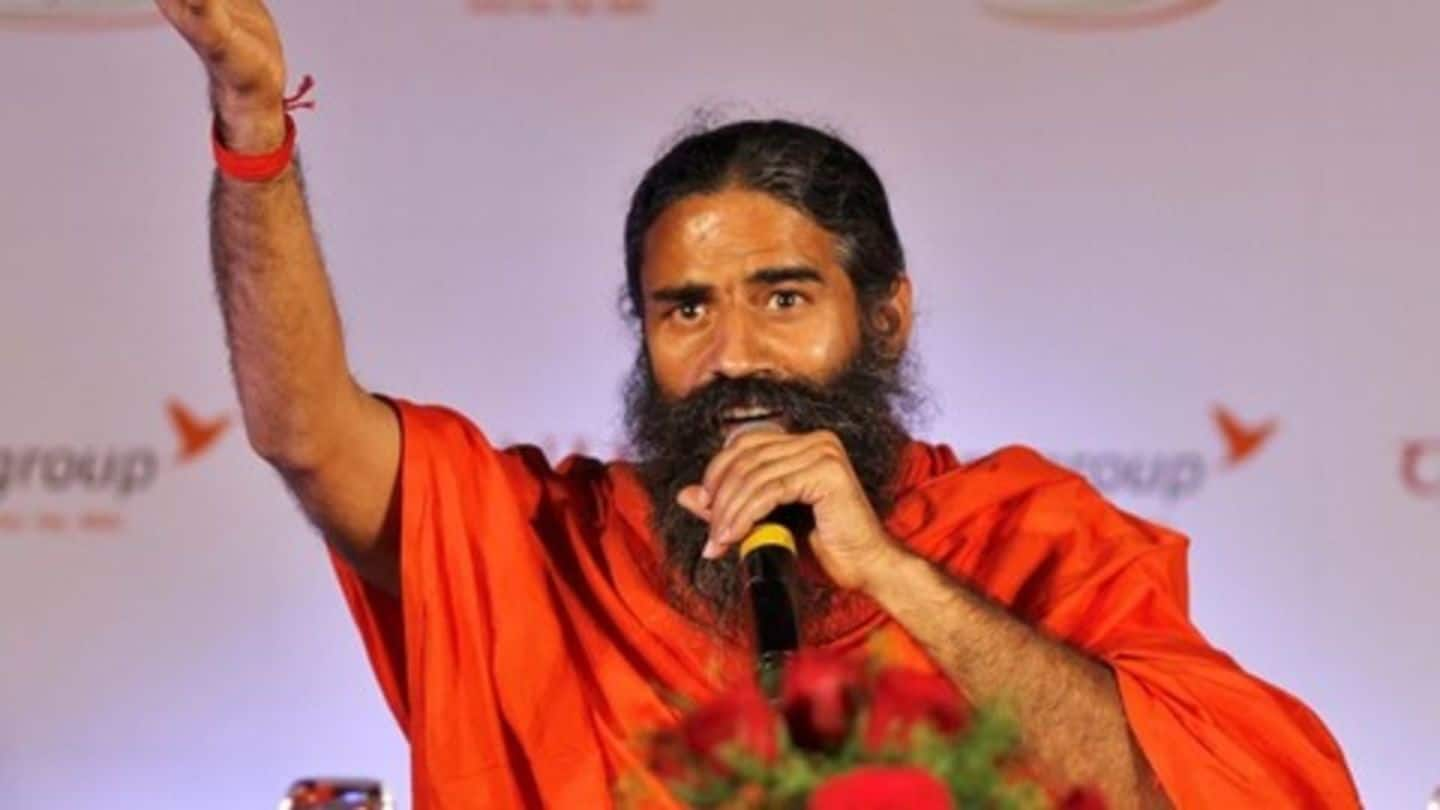
Baba's empire: Patanjali's success story has too loose a narrative
What's the story
It's as if Patanjali can do no wrong. In a very brief period of time, it took the FMCG sector by storm with an array of "swadeshi" products, promising to make "videshi" FMCG giants quaver. Now it's eyeing the textile and garment manufacturing segment for another big hurray. An Indian success story is always welcome but something is off about Patanjali's. Let's talk.
Nepal
What are you talking about?
Patanjali and its products have been pegged, several times, for being substandard. Before coming to India, let's take a look at our neighboring country Nepal. It's one of the largest consumers of Patanjali's products and Ramdev had said that he would make a substantial investment in the region. However, recently, Nepal's Department of Drug Administration asked Patanjali to recall six of its products.
Patanjali
This was not the first time
Apparently, these Patanjali products were discovered to be of "substandard quality" in their microbial tests. This is not a one-off incident. It had started way back in 2012 in India when the initial chapters of its growth story were being written. Patanjali's products, including honey, salt, mustard oil, jam and besan (gram flour), had allegedly failed quality tests. Even now, such instances are surfacing.
Baba
Let's move over to other things
In April this year, the Canteen Stores Department (CSD), which supplies products to the army, suspended a batch of Patanjali's product because they failed their laboratory tests. These incidents are, however, just the tip of the iceberg, when it comes to talking about anomalies in Baba Ramdev's success chariot - Patanjali. Allegations about how Patanjali's production plants operate paint a very disturbing picture.
Production
What takes place in Patanjali's production plants?
There's a huge demand for Patanjali's products. To address this demand, it needs to carry out production on a humongous scale, which in turn requires labor. However, Baba wants the labor for a fraction of what the market pays, which wouldn't have been possible normally. Therefore, Baba pulls out one of his specialties -"spirituality" - and gets things moving.
Work
Modern-day spiritual slavery
Reportedly, a job is not exactly seen as a job at Patanjali. Ramdev sees work in the factory premises as spiritual 'seva' to the nation, to the yoga and ayurveda. A Patanjali factory floor laborer earns Rs. 6,000 per month for twelve-hour shifts, six days a week, which is way less than the market norms. It's, however, the pedestal on which the empire stands.
Seva
Seva doesn't pay bills
If someone wants a hike, they are reminded of their place in the entire plan of things. First, it's "seva" and second is that there is no dearth of labor, which makes them easily replaceable. One of the two always works. Baba says, "The wealth of Patanjali is not for any one person - it is for the country. It is all for charity."
Balkrishna
The Fakir's apprentice
Recently Acharya Balkrishna, who's apparently the managing director and primary stakeholder of Patanjali, made his way into the Hurun India Rich List 2017. Patanjali's Balkrishna jumped to the eighth place in the list from 2016's 25th position after his wealth grew by 173% to Rs. 70,000 crore. Now, if the aide has Rs. 70,000 crore in his kitty, how much does the Guru have?
RTI
Why was this book silenced?
Maybe a better insight into Baba Ramdev could be found in the book that came with the alluring title "Godman to Tycoon: The Untold Story of Baba Ramdev.' This book apparently contains a detailed 25-page note on sources that lists the interviews, articles, police reports and RTI replies pertaining to Baba Ramdev and how he does business, according to its publisher Juggernaut.
Court
Stories in the wind
However, the Delhi High Court has restrained the publication and sale of this controversial book. Why was it controversial? According to the book, Patanjali Ayurved, founded in 2006, capitalized on nationalist sentiments, sticking a 'swadeshi' label to traditional capitalist items and practices. These allegations came with proof, as mentioned earlier, and would have damned the brand if published. Therefore, it was silenced.
Drama
A strong political clout?
Patanjali success story remains largely untarnished till date. In a Forbes interview, Balkrishna glibly remarked, "First Brinda Karat went after us, and now she and her party (CPIM) are nonentities; then the Congress went after us, and now they are out of power." Now, it remains to be seen if we'll ever learn the truth or be confined in what Patanjali projects outwardly.